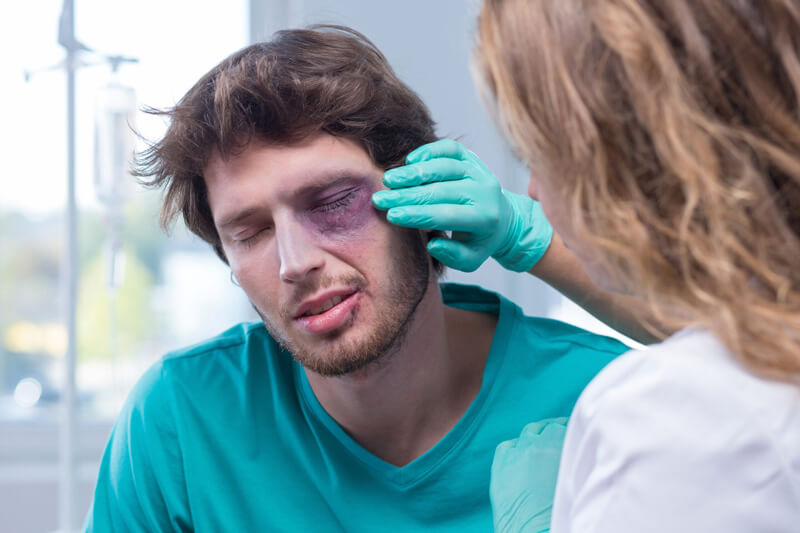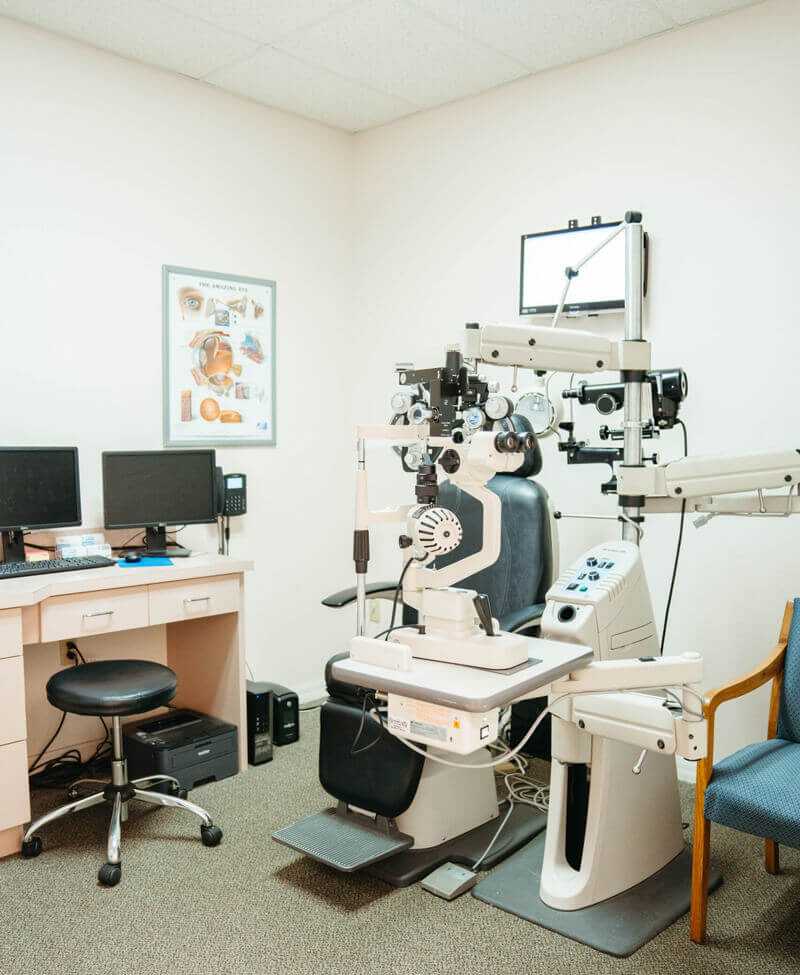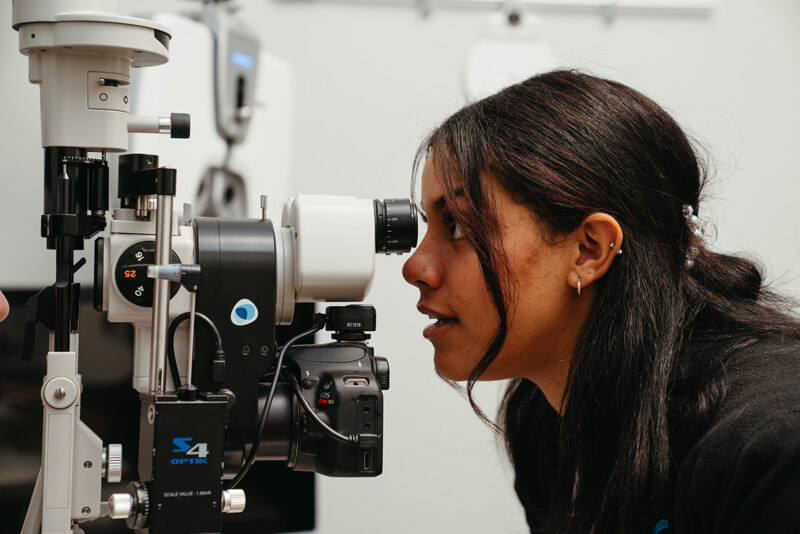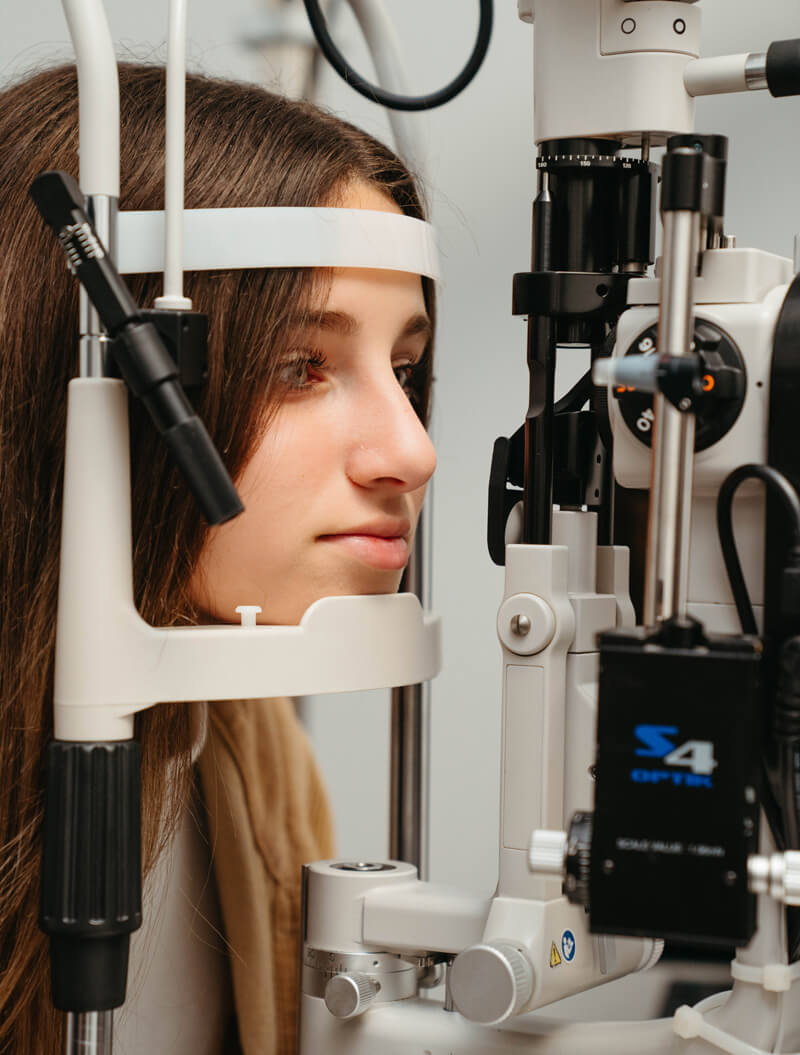Emergency Eye Care

Emergency Eye Care at True Eye Experts
True Eye Experts provide emergency eye care services for the communities we serve. If you experience an eye injury, infection, or another severe emergency, see an eye doctor right away for immediate treatment and to prevent any further damage to your eyes. You can also head directly to the emergency room if that is faster and easier.
Get the help you need, when you need it. Call one of our locations to learn more about our services.

What Is Emergency Eye Care?
At True Eye Experts, in addition to conducting traditional eye exams, we also help manage a wide range of eye problems. Learn more about our emergency eye care services, and contact us today to schedule your appointment.
Emergency eye care covers a wide range of examination and treatment options that immediately follow an accident or injury to the eye area. While the emergency room or urgent treatment center can provide you with first aid, bandaging of serious injuries, and diagnostic procedures, they may not have the specialized training to diagnose and treat eye issues following an emergency.
Scheduling an emergency eye appointment with our team allows your eye doctor to diagnose the issue and make a plan for follow-up care in the same location.
What Types of Emergency Eye Care Cases Are Treated By An Optometrist?
There are several instances where you may find that you need to seek emergency eye care from an optometrist as issues related to the eye can have a range of symptoms and severity. If you notice any changes to your vision or you suspect that your child or loved one needs further assistance after a fall, don’t hesitate to call one our locations. All of our True Eye Experts doctors are qualified to assess and treat emergency eye care cases.
Sudden Vision Problems
Experiencing sudden symptoms that affect your vision can be alarming, especially if you don’t remember injuring your eye. Eye conditions such as glaucoma or optic neuritis can sometimes cause odd visual symptoms or even sudden vision loss. An emergency exam with an optometrist is necessary if you experience any of the following symptoms and don’t know the cause:
- Flashes of light
- Sudden blurry vision
- Double vision
- Loss of vision in one or both eyes
- Vision changes with a headache
Strange Symptoms Following an Accident
Perhaps you were hit in the face by a ball during a basketball game, or you walked into the corner of a kitchen cabinet. You seemed fine at first but later noticed your eye was bothering you. Accidents and trauma to the eye area can cause some strange and concerning symptoms.
While symptoms like bleeding may need obvious urgent treatment, others may be more subtle. Even if you’re not experiencing pain after an accident, floaters, flashes of light, or other unusual symptoms indicate that you should schedule an emergency eye exam with an optometrist immediately.


When Should I Go To The Emergency Room?
Some emergency eye situations cannot wait for an appointment with an optometrist. If you’re experiencing severe symptoms or were in an accident involving other body parts, it’s critical to go to the emergency room immediately.
A Foreign Object Is Stuck in Your Eye
If your contact lens is stuck under your eyelid, don’t try to fish it out yourself. It’s easy to scratch your eye with your fingers or another object you use to remove the lens. Other objects that can get stuck in the eye or damage its surface are dirt, sand, glass, metal, and household chemicals.
Changes in Eye Appearance
If your eye looks noticeably different, this can be another sign that you must schedule a 24-hour emergency eye care appointment. Symptoms such as bleeding, oozing fluid, extremely dilated pupils, or mild tearing of the eyelid are all visual signs that you should schedule an emergency appointment with your optometrist.
If you have severe tearing or trauma to the surrounding area on your face, you should visit the ER.
If you have what looks or feels like pinkeye, or your eyes are visibly red and feel painful, you should call for an immediate appointment. Conjunctivitis (pink eye) can be viral, bacterial, or caused by allergens. While conjunctivitis isn’t always an emergency, don’t assume that it will go away on its own. Instead, seek treatment as quickly as possible.
Learn More About Emergency Eye Care at True Eye Experts
True Eye Experts provides emergency eye care services for the communities we serve. If you experience an eye injury, infection, or accident, please see an eye doctor for immediate treatment to prevent any further damage to your vision.
Remember that in severe situations (such as excessive bleeding, severe pain, or facial tissue injury), visit the emergency room immediately.
Are you worried about what to do in an eye emergency? Don’t delay treatment. Get in touch with your nearest True Eye Experts location for guidance or to schedule an appointment today.
Frequently Asked Questions About Emergency Eye Care
How Can a Licensed Optometrist Help in an Emergency?
Optometrists conduct vision tests, diagnose vision problems, prescribe glasses and contact lenses, and manage the treatment of several eye diseases. Our optometrists at True Eye Experts can conduct emergency exams to determine the root cause of your vision problems and eye discomfort following an accident or injury.
What Happens if My Eye Symptoms Get Worse Before I Can Come to My Appointment?
If your eye symptoms become more severe before your appointment, please go to the ER for immediate emergency eye care. Be vigilant about monitoring your symptoms, as well as any changes in your vision, while you’re waiting for an appointment.
Can I Do Anything To Help My Symptoms Before My Appointment?
While waiting for your appointment, it’s vital that you care for your eye without aggravating the issue, including thoroughly rinsing with water if you’ve gotten chemicals or household cleaners in your eyes.
You should also refrain from doing the following:
- Rubbing or pressing on the injured eye
- Trying to remove the foreign object or contact with your fingers
- Using tweezers or other sharp objects near your eye
- Using cotton swabs to wipe your eye
